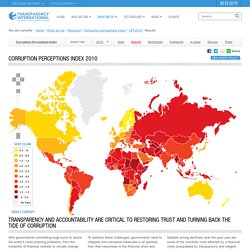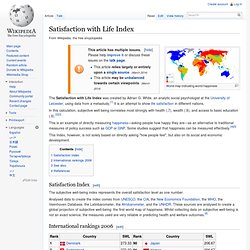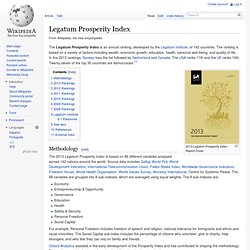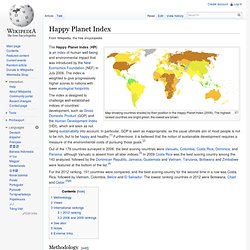

Better Life Index. Hdr2013_en_complete.pdf. Index Mundi - Country Facts. International Human Development Indicators - UNDP. International - the global coalition against corruption. With governments committing huge sums to tackle the world's most pressing problems, from the instability of financial markets to climate change and poverty, corruption remains an obstacle to achieving much needed progress.

The 2010 Corruption Perceptions Index shows that nearly three quarters of the 178 countries in the index score below five, on a scale from 10 (highly clean) to 0 (highly corrupt). These results indicate a serious corruption problem. To address these challenges, governments need to integrate anti-corruption measures in all spheres, from their responses to the financial crisis and climate change to commitments by the international community to eradicate poverty. Transparency International advocates stricter implementation of the UN Convention against Corruption, the only global initiative that provides a framework for putting an end to corruption. Read the ReportDownload French report About this table Click the column headings to sort the table by rank or country. Satisfaction with Life Index. World map indicating world happiness The Satisfaction with Life Index was created by Adrian G.

White, an analytic social psychologist at the University of Leicester, using data from a metastudy.[1] It is an attempt to show life satisfaction in different nations. In this calculation, subjective well being correlates most strongly with health (.7), wealth (.6), and access to basic education (.6).[2][3] This is an example of directly measuring happiness—asking people how happy they are—as an alternative to traditional measures of policy success such as GDP or GNP.
Some studies suggest that happiness can be measured effectively.[4][5] This Index, however, is not solely based on directly asking "how people feel", but also on its social and economic development. Satisfaction Index[edit] The subjective well-being index represents the overall satisfaction level as one number. International rankings 2006[edit] Legatum Prosperity Index. The Legatum Prosperity Index is an annual ranking, developed by the Legatum Institute, of 142 countries.

The ranking is based on a variety of factors including wealth, economic growth, education, health, personal well-being, and quality of life. In the 2013 rankings, Norway tops the list followed by Switzerland and Canada. The USA ranks 11th and the UK ranks 16th. Twenty-seven of the top 30 countries are democracies.[1] 2013 Legatum Prosperity Index - Report Cover Methodology[edit] EconomyEntrepreneurship & OpportunityGovernanceEducationHealthSafety & SecurityPersonal FreedomSocial Capital For example, Personal Freedom includes freedom of speech and religion, national tolerance for immigrants and ethnic and racial minorities. Oxford Analytica assisted in the early development of the Prosperity Index and has contributed to shaping the methodology. The Legatum Institute operates a transparent approach to its work on the Prosperity Index. 2013 Rankings[edit] Top 30. Happy Planet Index. Map showing countries shaded by their position in the Happy Planet Index (2006).

The highest-ranked countries are bright green; the lowest are brown. The index is designed to challenge well-established indices of countries’ development, such as Gross Domestic Product (GDP) and the Human Development Index (HDI), which are seen as not taking sustainability into account. In particular, GDP is seen as inappropriate, as the usual ultimate aim of most people is not to be rich, but to be happy and healthy.[1] Furthermore, it is believed that the notion of sustainable development requires a measure of the environmental costs of pursuing those goals.[2] Out of the 178 countries surveyed in 2006, the best scoring countries were Vanuatu, Colombia, Costa Rica, Dominica, and Panama, although Vanuatu is absent from all later indices.[3] In 2009 Costa Rica was the best scoring country among the 143 analyzed, followed by the Dominican Republic, Jamaica, Guatemala and Vietnam.
Methodology[edit] Pros: Cons: